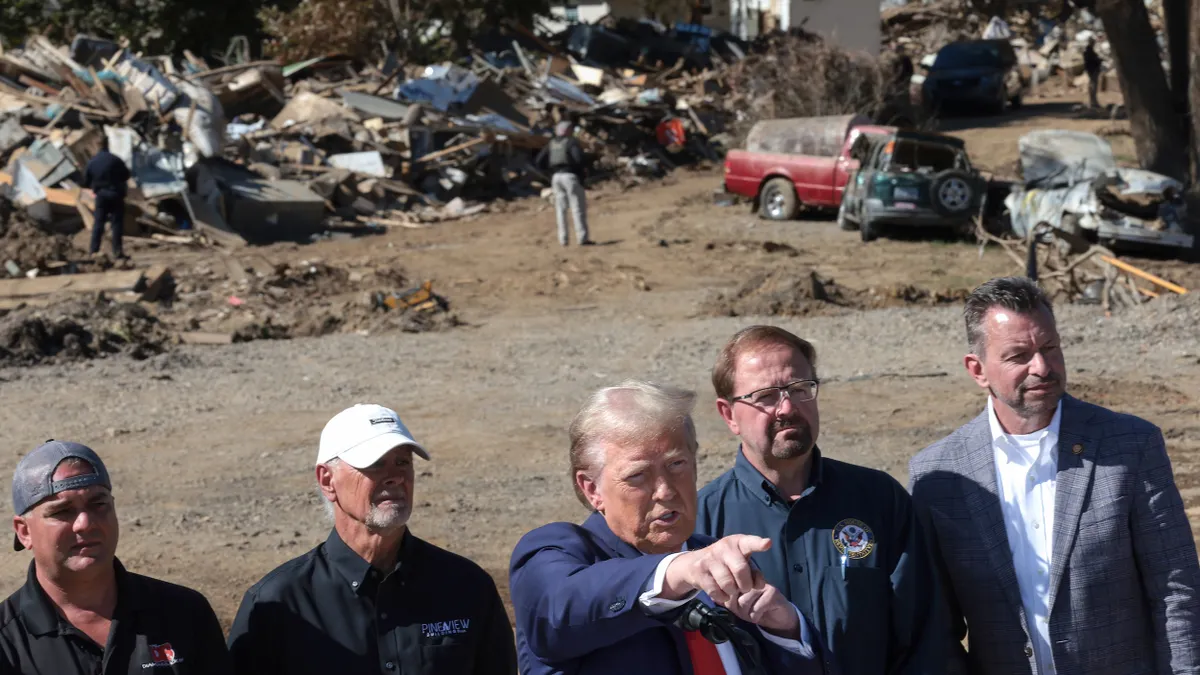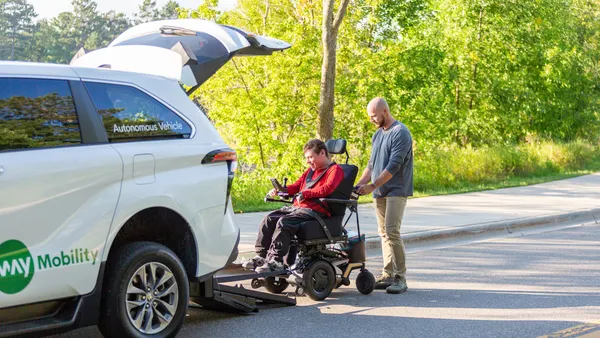UPDATED: Nov. 5, 2018: Mayor Tim Keller announced last week that Albuquerque, NM's bus rapid transit (BRT) project is still not safe for use "at any speed," according to Albuquerque Business First. Since June, the city has addressed issues with project funding and construction of the ART lanes and platforms, however issues regarding the buses' battery efficiency still remain.
During a news conference, Keller said the city will hold bus manufacturer BYD accountable. "We have given them roughly a year to work through these challenges. Unfortunately, this is a major, major stumbling block for BYD with respect to this project, and I'm running out of patience with them," he said.
Dive Brief:
- Albuquerque, NM Mayor Tim Keller provided an update on the city's bus rapid transit (BRT) project last week, explaining the project still needs significant improvements to ensure safety and efficiency. These improvements include installing mobility signage; striping the road so drivers can navigate the corridor; installing video monitors and ensuring the completion of bus and traffic signal timing programming.
- During a press conference, Keller also said the batteries for the project's 15 fully-electric buses don't hold charge as expected. While the buses are supposed to run for 275 miles without recharging, they only run about 180 miles on a single charge, according to KOAT 7. BYD, the contracted bus manufacturer, has agreed to install charging stations at the end of each Albuquerque Rapid Transit (ART) line to ensure charging efficiency.
- The city will also put drivers through a 12-14 week training and will develop a full education campaign for the city to ensure that safety inside the new traffic lanes and transportation platforms remains a priority.
Dive Insight:
The city launched partial service of the ART system in November 2017 following months of controversy around the $126 million project. Opponents had claimed the construction of the ART lanes and platforms was costly and obtrusive to businesses, while proponents said the ART will help boost the local economy.
Overall, the project has been a headache for Keller, who took office in December 2017 and inherited a handful of issues surrounding the project: funding was insufficient, there were engineering challenges and bus operability was unknown. Keller said in a statement the ART project has become a "hardship" due to its lagging progress and unmet expectations, noting, "This is not the position that any of us hoped we would be in with this project ... But that’s the reality of where we are, and now we need to do everything within our control to do the right thing for the people of Albuquerque."
And while Albuquerque is not the first city to introduce an electric BRT route, it ironically was the first U.S. BRT system to receive the Gold Standard for Bus Rapid Transit from the Institute for Transportation and Development Policy. The award was issued for the city's decision to have buses run in the middle of the roadway and for the design of the transit platforms, among other strategic choices, though in hindsight the award teaches a valuable lesson — plans are only as good as their execution.
By not securing sufficient funds or succeeding in engineering challenges, the city's BRT project has not been able to live up to its gold standard. Cities — especially those facing a mayoral transition that may cause developmental disruption — should be aware of the challenges Albuquerque has faced when rolling out similar transit projects.











